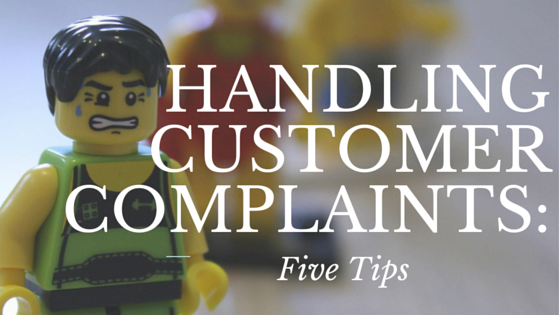
Whether you’ve enjoyed a delicious restaurant meal served by an attentive waiter or been left frustrated by poor complaint handling, social media is usually the pulpit of choice for the pleasantly surprised and irate alike.
This online feedback can have significant implications if you’re a business owner. On the one hand, positive feedback can be an effective way of encouraging new custom – many people use the digital domain to scout out a new business and if they like what they read they will probably give you custom. Negative feedback, however, can have precisely the opposite effect. If you’re a business owner, finding a poor review of your products or services can feel devastating – and personal too.
So, how should you respond? If you’re faced with an angry tweet or furious Facebook user, take a moment to these handy tips read on before you act.

- Breathe! People rarely expect an instant response, so take five minutes to digest their concern(s). Understanding them will help you to respond more appropriately, which is better than typing panicked nonsense that you’re unable to delete later on.
- Don’t ignore a negative comment. Maybe you’re just trying not to start an argument, but the public doesn’t know your reasons for remaining silent. Failure to respond can be perceived as anything from apathy to incompetence and could encourage more responses of the same nature. It’s therefore important to acknowledge the complainant in a timely manner, so demonstrate your diligence by aiming to respond to people within 24 hours whenever possible.
- Respond appropriately. Sometimes, all it takes is an apologetic comment acknowledging a customer’s frustration to diffuse a heated situation. You can also sweeten your apology by offering a future discount or freebie – remember, your reply is just as public as their complaint so why not show the same audience that your business is keen to make amends? Negative comments can be a positive PR opportunity in disguise, so show off your customer care skills, which could give you the edge over your competitors.
- Be realistic. Some people can’t be appeased. Maybe the person complaining just enjoys venting over social media (a quick profile check can confirm this suspicion). Even if this is the case it’s important to take the comment(s) seriously, but if a brief response quickly turns in to an extended exchange you should take the conversation offline. Direct the complainant to your email address and settle the score away from the all-seeing eyes of social media. While it’s important to address complaints publicly, a drawn out, verbal battle that dominates your social media page will draw attention to you for all the wrong reasons and potentially deter any new customers.
- Don’t delete comments. Slander and abusive comments aside, you should never be tempted to remove a valid complaint – this will only serve to anger the disgruntled customer further. What’s more, angry people have a tendency to go public – often via social media platforms – so this act is a way of pouring fuel on the verbal fire. Always try a constructive solution first and approach deleting or blocking with caution.
Still feeling lost? Don’t worry – you can find some great examples of fantastic (and terrible) customer service from marketing platform Spokal here: http://bit.ly/1X5ZqNO.
Good luck! Just keep calm and carry on…
By Georgina Hawkins, Community Manager.
